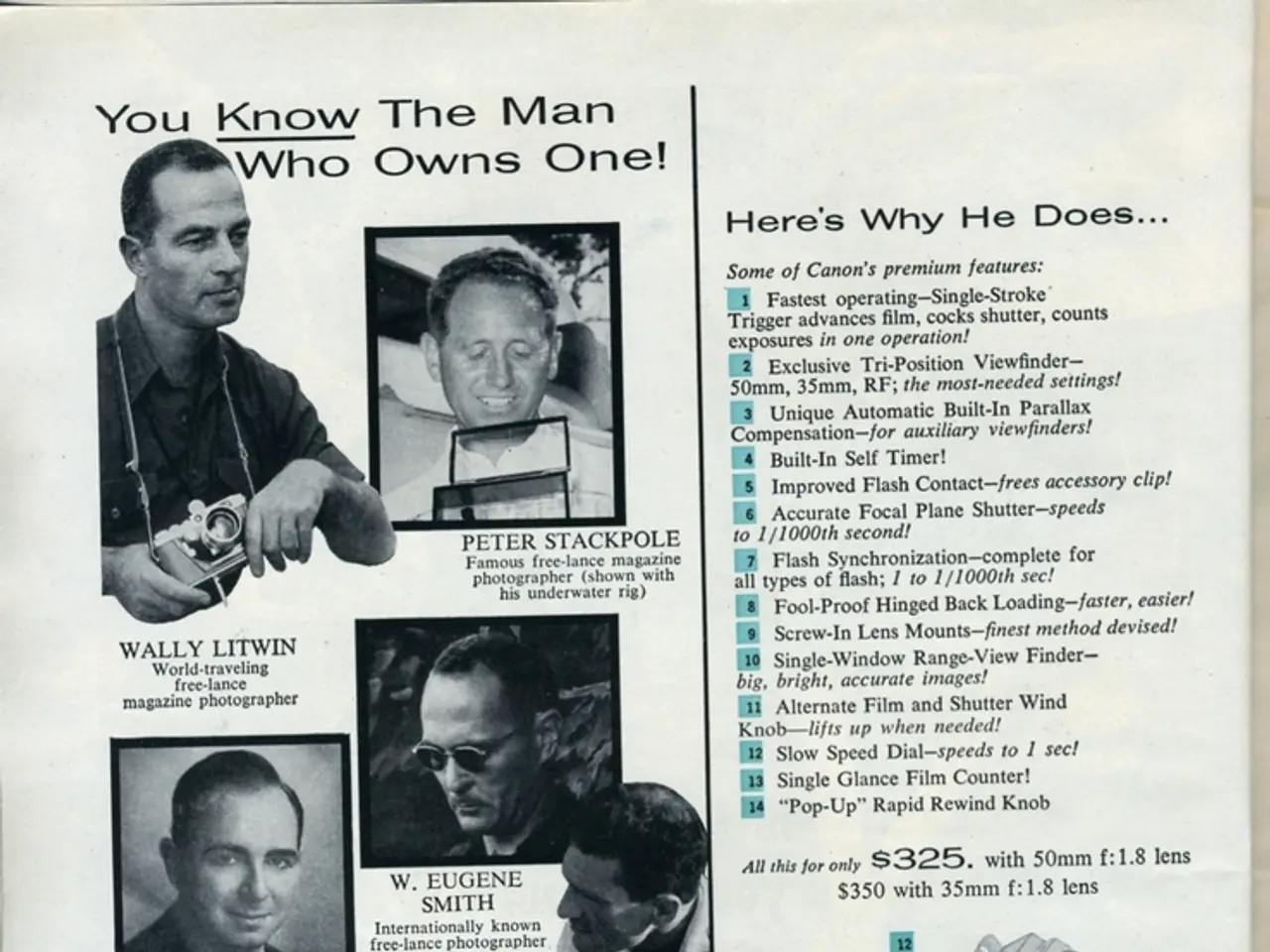"Embracing Compassion: Nurturing Life in All Its Forms"
In the heart of August 2025, cinemas worldwide will welcome a thought-provoking documentary titled "The Gentle Revolution," directed by Annelie Boros. This 93-minute film delves into the topic of care, a subject close to Boros' heart, having been a caregiver herself.
Boros, who studied documentary film and television journalism at the University of Television and Film Munich, has made a name for herself with her previous works, such as "Mars Closer," "F32.2," and "Fuck White Tears," which have been showcased at international festivals and have received multiple awards.
"The Gentle Revolution" is not just a film; it's a conversation, a dialogue between the filmmaker, the protagonists, and the audience. Boros involves the individuals featured in the filmmaking process, asking them about their interests in participating and ensuring the film can be used for their benefit.
The film features Bozena, a 24-hour caregiver who bravely sued her agency and won her case, and organizes with her union to support other caregivers. Samuel, a disability activist and caregiver, is also prominently featured, offering insights into the lives of those who rely more on help than others.
The film extends care beyond people to the environment, with Boros including a Peruvian indigenous climate activist, Dr. Amanda, to highlight this. The documentary emphasizes the interdependence of humans and their environment, stating that a healthy planet is essential for food and protection from disasters.
"The Gentle Revolution" is a deeply personal film, with Boros discussing boundaries with the protagonists before filming, allowing them to set their own limits and offering to review scenes and veto them if necessary. This approach ensures a respectful and comfortable environment for all involved.
The film poses intimate and poignant questions, such as "What is care to you?" and "In which world would Kathrin have liked to live? Or is there a world where suicide wouldn't have been her only way out?" These questions serve to provoke thought and encourage empathy among viewers.
The idea of using the letter format in the film originated from Boros' personal correspondence. This intimate, reflective approach allows her to explore the subject matter in a deeply personal and poetic way. The letter format serves both as a structural and thematic device, creating a meaningful dialogue between the filmmaker, the audience, and the ideas explored in the documentary.
Boros' Romanian family background plays a role in the film, as Romanian caregivers cared for her grandmothers in Germany, and she had a close relationship with one of them. The film is, in many ways, a love letter to Kathrin, Boros' friend and roommate who took her own life during the research for the film.
"The Gentle Revolution" is more than just a documentary; it's a call to action, a gentle revolution towards a more caring and interconnected world. It's a film that will make you think, feel, and perhaps even inspire you to make a difference in your own life and the lives of those around you.
- Annelie Boros, director of the upcoming documentary "The Gentle Revolution," studied at the University of Television and Film Munich, focusing on documentary film and television journalism.
- "The Gentle Revolution" is a conversation between the filmmaker, the protagonists, and the audience, with the individuals featured being involved in the filmmaking process.
- The film, scheduled for release in August 2025, will feature Bozena, a 24-hour caregiver who sued her agency and won her case, and Samuel, a disability activist and caregiver.
- The film extends care beyond people to the environment, highlighting a Peruvian indigenous climate activist, Dr. Amanda, to emphasize the interdependence of humans and their environment.
- Boros discusses boundaries with the protagonists before filming, allowing them to set their own limits and offering to review scenes and veto them if necessary.
- "The Gentle Revolution" poses intimate and poignant questions, such as "What is care to you?" and "In which world would Kathrin have liked to live?" to provoke thought and encourage empathy among viewers.
- The film's unique structure is based on Boros' personal correspondence, creating a meaningful dialogue between the filmmaker, the audience, and the ideas explored in the documentary.
- The film is a love letter to Kathrin, Boros' friend and roommate who took her own life during the research for the film, and is a call to action towards a more caring and interconnected world.




